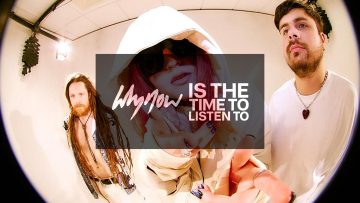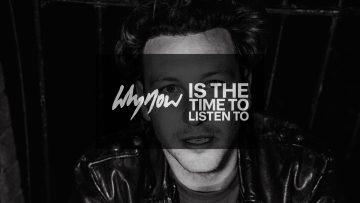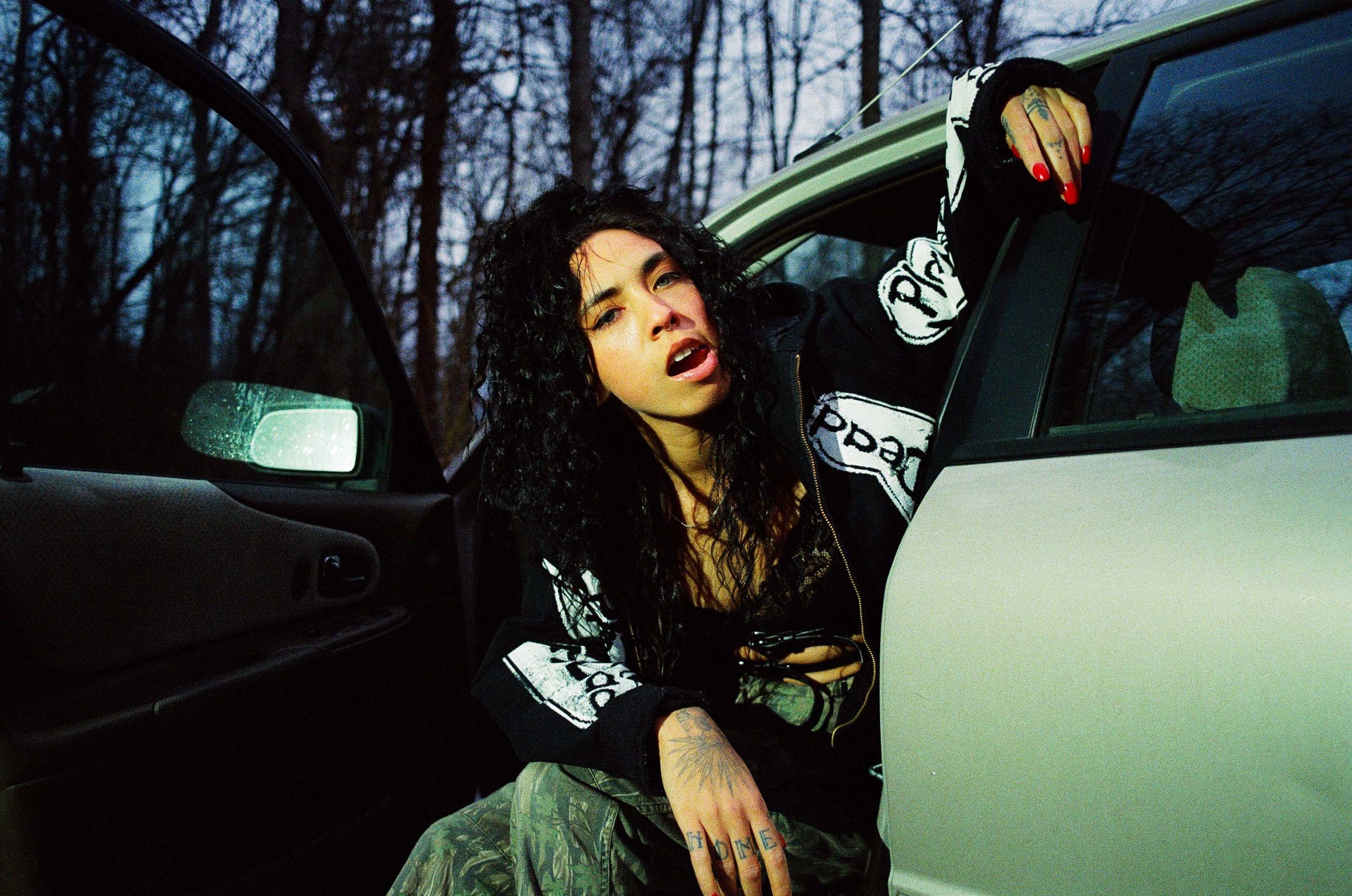
As she approaches her third album, Indigo de Souza has come of age – again. 2018’s I Love My Mom, 2020’s Any Shape You Take, and now this year’s All of This Will End are all vivid, visceral snapshots of what it’s like to be a human, to feel, to live and to hurt; but we are moving forwards on the path through them and the journey that Indigo is on, each record venturing a little further along than the last.
On All of This Will End, however, there’s a spark of something different. It’s not as though Indigo has all the answers, or as if she’s finished on her travels and ready to emotionally settle, but as if she’s found something and feels more ready.
On the surface it sounds simple: “I’m always just speaking to the truth of my own experience in the world. Humans are not that different from each other,” Indigo says, matter-of-factly. “Everyone experiences loss and pain and heartbreak and happiness and change, all of those things are not unique to me. So writing about those things always feels important to share.”
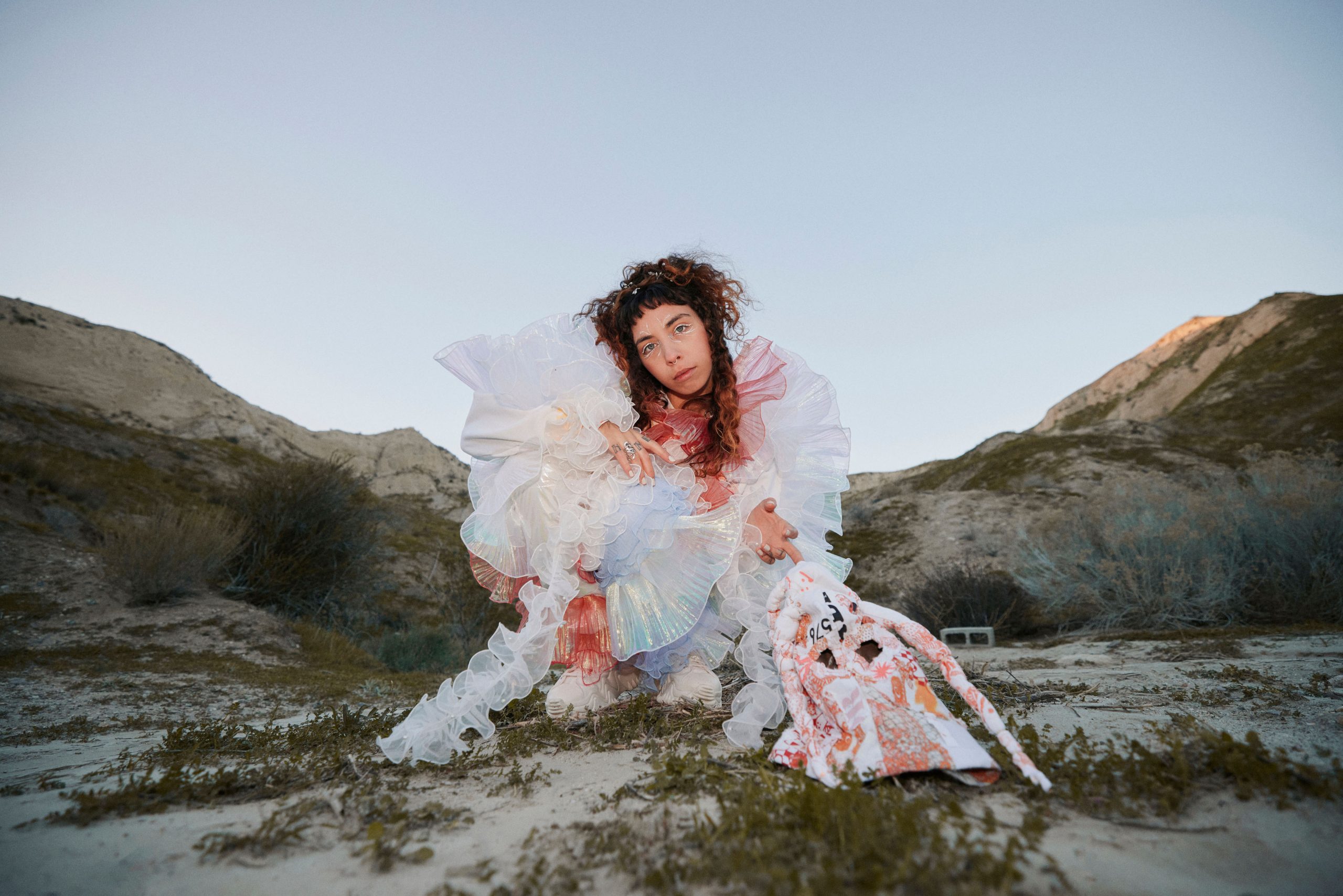
Photo: Angella Choe
It’s her intention, her compelling need to vocalise the things she feels in order to commune with the world at large – and her heart-wrenching deftness at doing so – that sets Indigo apart (even if we are not all that different). The way she writes about personal matters is all-encompassing, and she taps into it without fear. “I know that I am fleeting and I’m dying,” she says without pause, “and I feel like it’s my purpose to share with people while I can. The only way for people to heal in any way is to come together.
“I named the album All of This Will End because it took me a while to accept that. Once I was able to accept that, feel less afraid of it but more open to it and curious about it, my life started to become more meaningful because accepting you are a temporary thing is what gives way to meaning and intention and connection.
“It doesn’t give way if you think you’re special and you’re never gonna die, or if you’re so afraid of death you can’t even think about it. I know the people I love are going to die and so am I, so I love them even more, and I put so much time and effort into showing up.
“I basically do as much as I can to shine a light on any corner I can reach. Any corner beyond what I know is beyond my control. I try to pour as much intention into everything I do, as much as I can, because I want people to feel included and safe. I know how lonely it is to be alive, so it feels important to create community if it’s possible at all.”
Indigo’s own community join her in the very fabric of All of This Will End – her mother, who creates all of her album artwork, and many of her friends who she worked with on the videos that to her are as important as the music.
“It feels really special to have [my Mum’s] spirit live in this way that feels more eternal, at least in this physical realm”, Indigo says of the artwork she has created, so beautifully intertwined with the music. The phrase ‘you are who you know’ – often used pessimistically in a social-climbing context – can apply here in an improved way, with Indigo and her vision embodied in what she creates with the people she loves.
Although much of All of This Will End hits heavy, Indigo delights in bringing in the light. “Lightness and darkness exist in the same space, and there is not one without the other,” she tells us. “I think life just throws different phases of feeling. Sometimes one or the other more strongly, or sometimes being at peace with both. So the album lies in the middle, a personal representation of coming to terms with the way that light and darkness play.”
Coming to terms with things we have, Indigo, at 25-years-old, is part of a generation who have lived through some uniquely tough times during their formative years. A global pandemic aside, there’s general socio-political unrest, pressures on young people, and a turbulent predicament for the music industry that Indigo finds herself in. Yet dealing with challenges is nothing new to her.
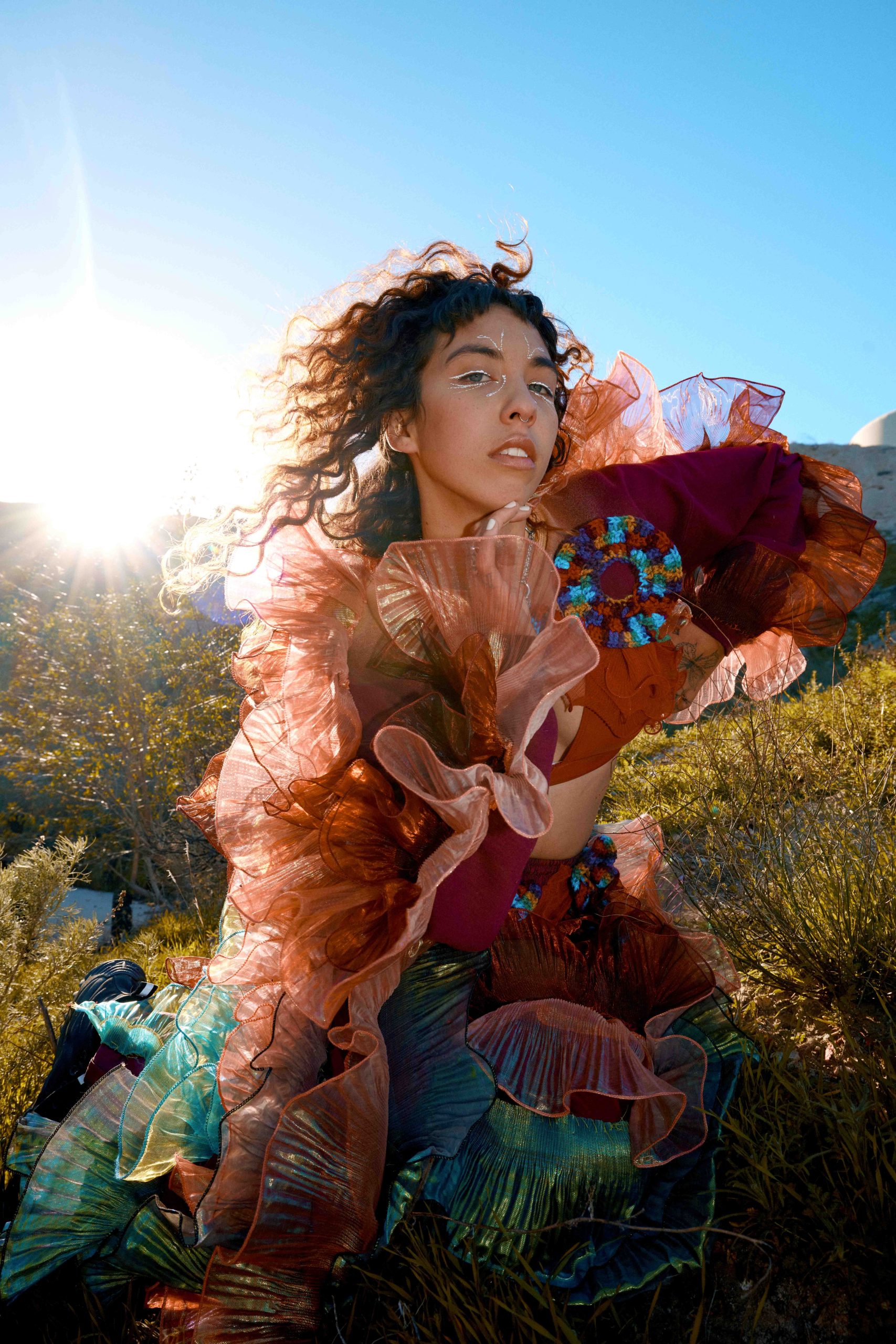
Photo: Angella Choe
“I’ve been very depressed and suicidal since I was nine years old… if I read journals from when I was nine, I’m pretty much the same as I am now except I didn’t have any acceptance and was just only confused about why I was here, why I had to experience loss. It felt like a weird joke that I was alive at all. But now I have a lot of acceptance for it.” Although she carries the weight of life every day, Indigo’s found a way to “choose to be strong every day instead of giving up” – and her need for her writing is now higher than it’s ever been.
Lead single ‘Younger and Dumber’ has prepared us well, chosen by Indigo because “it just moved me the most. And I think that’s because it’s a really good depiction of my life’s journey and what it’s felt like to go from vulnerable innocence to a really harsh learning about how brutal the world is – and then coming to an acceptance about the play of light and dark, and feeling like it’s okay to lean into it and be with it. It felt important to lead with something that represented not only my current self, but also my child’s self.”
Indigo talks about playfulness and her ‘child self’ at length in relation to All of This Will End, which sonically picks up on some lighter sounds, and which she describes as “playful, humorous, sarcastic in moments and triumphant, more of an overcoming.” From indie-punk fuzz to sunshine riffs, Indigo has been “writing for [her] spirit.”
“When I say child self, I mean my spirit,” she explains. “When I think of myself as an actual child, being a toddler, what I think of is the amount of purity and innocence and openness that there was because I didn’t know anything about the way the world worked. When you’re a child, that’s when your spirit is the truest, because you haven’t been taught who you have to be yet.
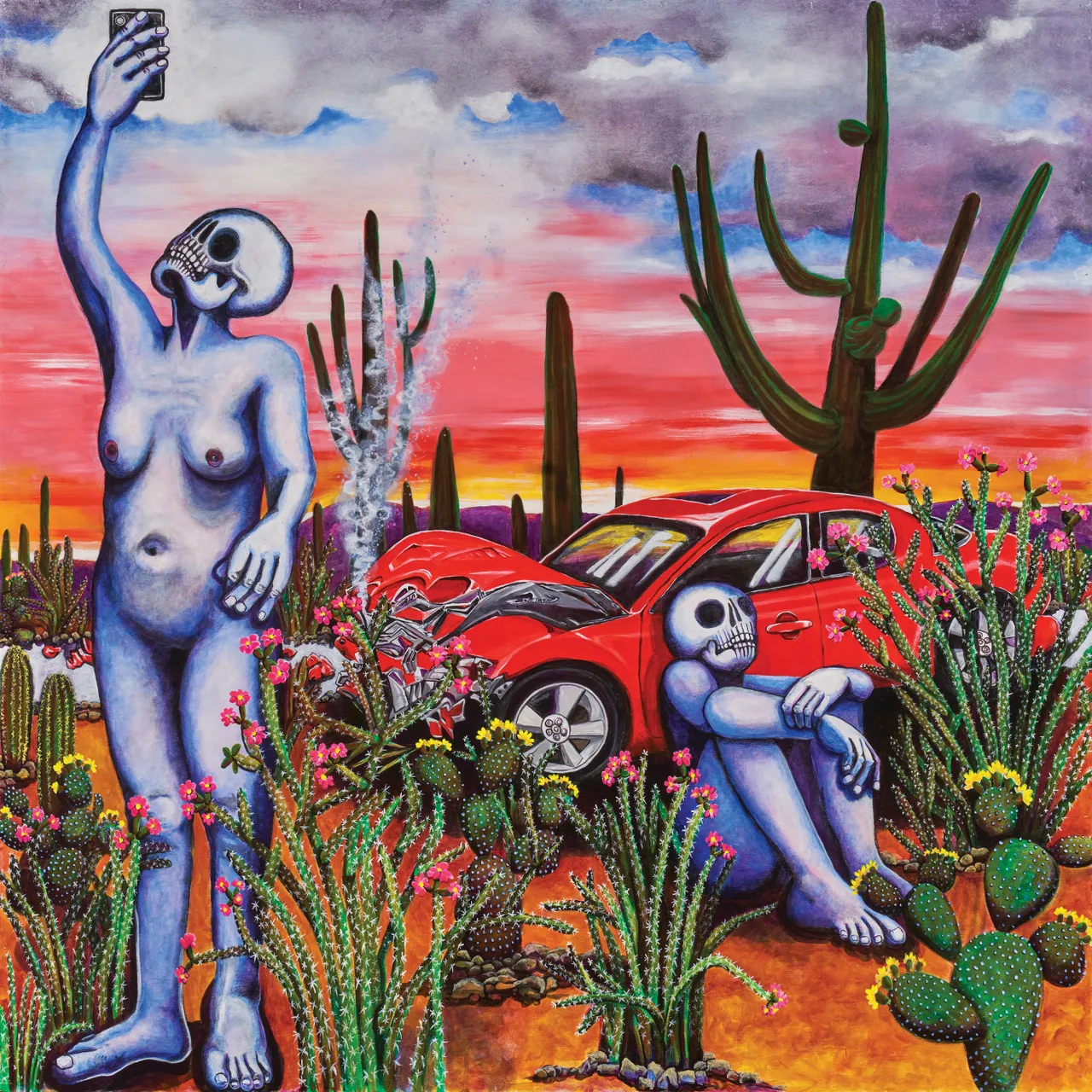
All of This Will End is out 28 April via Saddle Creek.
“Sometimes when I think of my child’s self, it can make me feel really sad and heavy for her, because it’s a really hard world to be in and really hard to weather the amount of loss, pain and heart-breaking beauty there is in the world. When I write, it’s like writing something for my spirit. And when I sing, I’m embodying the words; the spirit is singing the words with me.”
All of This Will End is essential, healing, primal listening, and Indigo De Souza writes with piercing poignancy. If you’re not there yet, this sort of radical acceptance may seem scary – but she tells the story with so much sympathy, sincerity, and tentative hope that you will indeed feel it.


